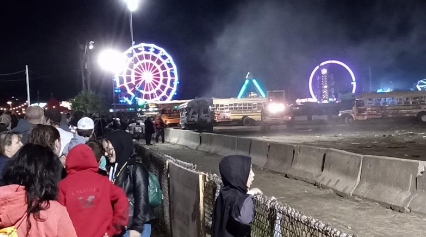
CONCORD - The state's Supreme Court on Tuesday ruled that the Rochester Fair's board of directors should not be unduly restricted from having fund-raising events at the fairgrounds to help defray the cost of the annual Granite State Fair.
The City of Rochester, which for several years has sought to obtain the fairgrounds' 68 acres for future development, was granted a motion to dismiss RAMA's lawsuit that claimed the city was denying permits for shows and events that the city had granted in the past.
The Supreme Court reversed Strafford Superior Court Judge Mark Howard's decision to dismiss. The Supreme Court noted RAMA's argument that the city's sudden reversal "was motivated by the collapse in negotiations for the city's purchase of the (Fairgrounds) property."
One source familiar with the city of Rochester's longstanding desire to purchase the fairgounds property told The Rochester Voice on Wednesday that the city has been trying to demonetize RAMA for many years in order to facilitate a forced sale at a reduced price.
The Fairgrounds' assessed value is around $4 million, the source estimated.
"The fair is trying to sustain itself, but the city is unrelenting in its efforts to cut off other nonfair fund-raising events needed to keep the fair solvent," they said.
The source asked that their name not be used as they are not authorized to speak for RAMA.
Some of the events the city used to allow but now routinely denies include motorcycle and car races, flea markets, bull riding and concerts.
The high court's decision, in part, notes that "RAMA argues that the trial court 'erroneously and narrowly construed . . . [RAMA's declaratory judgment action] to be a simple appeal of a ZBA denial of one license,' while RAMA's pleadings actually allege 'much broader facts' and request much broader relief. We agree."
Attorney Marcia Brown of Brown Law of Concord, RAMA's attorney, said she was pleased with the ruling, adding "RAMA looks forward to having its day in court back in Superior Court."













